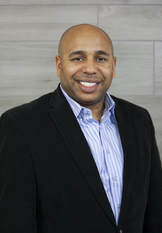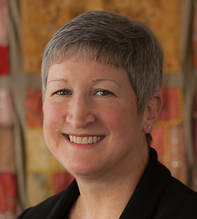
Gabriel Villarreal of Opportunity Fund, a Small Business Borrowers’ Bill of Rights (BBoR) founder and member of the Responsible Business Lending Coalition (RBLC) sat down for a conversation with Everett K. Sands, co-Founder and CEO of Lendistry. The organization became a Signatory of the Rights in 2017.
Lendistry Cofounder and CEO, Everett K. Sands, understands the challenges entrepreneurs face in accessing capital.
In 2014 Everett was working at a large bank that, despite its large loan volume, was still turning down a considerable number of small business loan applicants. The bank’s strategy for expanding its commercial loan activity was to purchase loans from community banks. However, this initiative coincided with a decrease in the total number of community banks due to a series of mergers and acquisitions. This meant fewer community banks doing small business lending and fewer loans for larger banks to purchase, creating a critical market gap for underserved small business owners. This is where Lendistry comes in.
Providing loans in the range of $50,000 to $2,000,000, “The back of the envelope business plan was to create an alternative financing company that could serve this market and have larger banks purchase our loans,” says Everett. In this way banks would be able to better fulfill their community obligations and underserved entrepreneurs would have the capital they needed to grow their businesses. Partnering with a community bank at the outset, which was later acquired, Lendistry became a CDFI in 2016 so it could partner with larger financial institutions from a funding perspective and continue to serve their community.
The company’s youth and community focus are Lendistry’s strengths. “Our successes and challenges go hand in hand,” says Everett, “Our youth in this industry means we’re open to change and innovation. One of our biggest successes is the unique team we’ve built. We’ve drawn people from the banking world and people who care about the community in a broad sense. We speak eight languages from Spanish to Korean, and this separates us from the norm.” This openness to innovation extends to the way Lendistry leverages technology. “Lendistry has built our lending platforms from scratch atop of more traditional processes, like making SBA loans smoother and more user-friendly. It’s impossible to build everything,” states Everett, “but from a data management perspective we have a lot of our own systems and can be self-reliant because of it.”
In terms of the needs of entrepreneurs in growing their businesses, Everett takes a unique perspective informed by his time in both the banking and community development worlds. “There’s been a hyper concentration on affordable housing and microlending in the CDFI space,” says Everett. “I think that’s good but from a macro-perspective, with banks making the operational decision to focus on loans above $1,000,000 and CDFIs focusing on loans less than $50,000, there’s just a huge gap. That’s the space we’re trying to fill.” According to Everett, in order for businesses to grow, create jobs, and create wealth in their communities, there needs to be more of a focus on helping these mid-sized businesses get the capital they need. “We’re helping the LMI population because, for 19% of the businesses we help, 40% of their employees would qualify as low-income. We support those jobs. We also care about minority businesses, women, and people of color, because they have jumped into the entrepreneurial space in a major way,” says Everett. In his view, “if we don’t uphold these populations and provide the financing in this space,” the alternative for these borrowers is high-cost lending with potentially terrible results.
Lendistry became a BBoR Signatory after engaging with RBLC members Community Investment Management and Opportunity Fund. Already a responsible lender, the BBoR was a natural fit for the organization. “CDFIs are supposed to go where banks can’t go. That’s our job,” says Everett. Lendistry does this using innovative technology, driven staff, and an eye towards the community. This is what makes them an important signatory of the BBoR.
We thank Lendistry for taking the time to talk with us about their lending and the importance of the Small Business Borrower’s Bill of Rights in the small business lending Industry.
If you are interested in learning more about the Small Business Borrower’s Bill of Rights please email [email protected].
If your organization is currently a signatory or endorser of the Small Business Borrower’s Bill of Rights and would like to be featured in our blog, please contact Gabriel at [email protected].
Lendistry Cofounder and CEO, Everett K. Sands, understands the challenges entrepreneurs face in accessing capital.
In 2014 Everett was working at a large bank that, despite its large loan volume, was still turning down a considerable number of small business loan applicants. The bank’s strategy for expanding its commercial loan activity was to purchase loans from community banks. However, this initiative coincided with a decrease in the total number of community banks due to a series of mergers and acquisitions. This meant fewer community banks doing small business lending and fewer loans for larger banks to purchase, creating a critical market gap for underserved small business owners. This is where Lendistry comes in.
Providing loans in the range of $50,000 to $2,000,000, “The back of the envelope business plan was to create an alternative financing company that could serve this market and have larger banks purchase our loans,” says Everett. In this way banks would be able to better fulfill their community obligations and underserved entrepreneurs would have the capital they needed to grow their businesses. Partnering with a community bank at the outset, which was later acquired, Lendistry became a CDFI in 2016 so it could partner with larger financial institutions from a funding perspective and continue to serve their community.
The company’s youth and community focus are Lendistry’s strengths. “Our successes and challenges go hand in hand,” says Everett, “Our youth in this industry means we’re open to change and innovation. One of our biggest successes is the unique team we’ve built. We’ve drawn people from the banking world and people who care about the community in a broad sense. We speak eight languages from Spanish to Korean, and this separates us from the norm.” This openness to innovation extends to the way Lendistry leverages technology. “Lendistry has built our lending platforms from scratch atop of more traditional processes, like making SBA loans smoother and more user-friendly. It’s impossible to build everything,” states Everett, “but from a data management perspective we have a lot of our own systems and can be self-reliant because of it.”
In terms of the needs of entrepreneurs in growing their businesses, Everett takes a unique perspective informed by his time in both the banking and community development worlds. “There’s been a hyper concentration on affordable housing and microlending in the CDFI space,” says Everett. “I think that’s good but from a macro-perspective, with banks making the operational decision to focus on loans above $1,000,000 and CDFIs focusing on loans less than $50,000, there’s just a huge gap. That’s the space we’re trying to fill.” According to Everett, in order for businesses to grow, create jobs, and create wealth in their communities, there needs to be more of a focus on helping these mid-sized businesses get the capital they need. “We’re helping the LMI population because, for 19% of the businesses we help, 40% of their employees would qualify as low-income. We support those jobs. We also care about minority businesses, women, and people of color, because they have jumped into the entrepreneurial space in a major way,” says Everett. In his view, “if we don’t uphold these populations and provide the financing in this space,” the alternative for these borrowers is high-cost lending with potentially terrible results.
Lendistry became a BBoR Signatory after engaging with RBLC members Community Investment Management and Opportunity Fund. Already a responsible lender, the BBoR was a natural fit for the organization. “CDFIs are supposed to go where banks can’t go. That’s our job,” says Everett. Lendistry does this using innovative technology, driven staff, and an eye towards the community. This is what makes them an important signatory of the BBoR.
We thank Lendistry for taking the time to talk with us about their lending and the importance of the Small Business Borrower’s Bill of Rights in the small business lending Industry.
If you are interested in learning more about the Small Business Borrower’s Bill of Rights please email [email protected].
If your organization is currently a signatory or endorser of the Small Business Borrower’s Bill of Rights and would like to be featured in our blog, please contact Gabriel at [email protected].



 RSS Feed
RSS Feed
